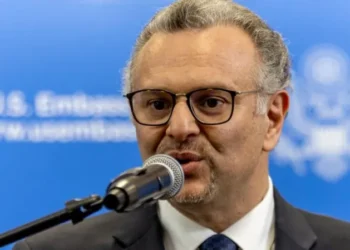By Emmanuel Nduka
The World Health Organisation (WHO) has said an estimated 703,000 people commit suicide annually.
According to the global health body, someone dies of suicide every 45 seconds around the world.
Disclosing this on the occasion of the 2022 World Suicide Prevention Day (WSPD) on Saturday, the WHO explained on its official website that for each suicide, approximately 135 people suffer intense grief, “resulting in 108 million people, annually, who are profoundly impacted by suicidal behaviours.”
It further added that for every suicide, 25 people make a suicide attempt and many more have serious thoughts of suicide, and that suicide is the fourth leading cause of death among 15-19 year-olds, with over 77 percent of global cases recorded in low- and middle-income countries in 2019.
On statistics as per gender, the WHO explained that more than twice as many males die from suicide as females (12.6 per 100,000 males compared with 5.4 per 100 000 females).
It said while suicide rates among men are generally higher in high-income countries (16.5 per 100,000), females account for the highest suicide rates in lower-middle-income countries (7.1 per 100,000).
The health body further noted that suicide rates in the WHO African (11.2 per 100,000), European (10.5 per 100,000) and South-East Asia (10.2 per 100,000) regions were higher than the global average (9.0 per 100 000) in 2019, while the lowest suicide rate was in the Eastern Mediterranean region (6.4 per 100,000).
The WHO in 2021 noted that many suicides happen impulsively in moments of crisis with a breakdown in the ability to deal with life stresses, such as financial problems, relationship break-ups or chronic pain and illness.
On the method of suicides, WHO said that around 20 percent of global suicides are due to pesticide self-poisoning, most of which occur in rural agricultural areas in low- and middle-income countries. Other common methods of suicide are hanging and firearms.
“By creating hope through action, we can signal to people experiencing suicidal thoughts that there is hope and that we care and want to support them. It also suggests that our actions, no matter how big or small, may provide hope to those who are struggling.
“Lastly, it highlights the importance of setting suicide prevention as a priority public health agenda by countries, particularly where access to mental health services and availability of evidence-based interventions are already low. Building on this theme and spreading this message over the three years, a world can be envisioned where suicides are not so prevalent.
“We can all play a role in supporting those experiencing a suicidal crisis or those bereaved by suicide whether as a member of society, as a child, as a parent, as a friend, as a colleague or as a person with lived experience,” the WHO said in its statement marking the celebration.



































